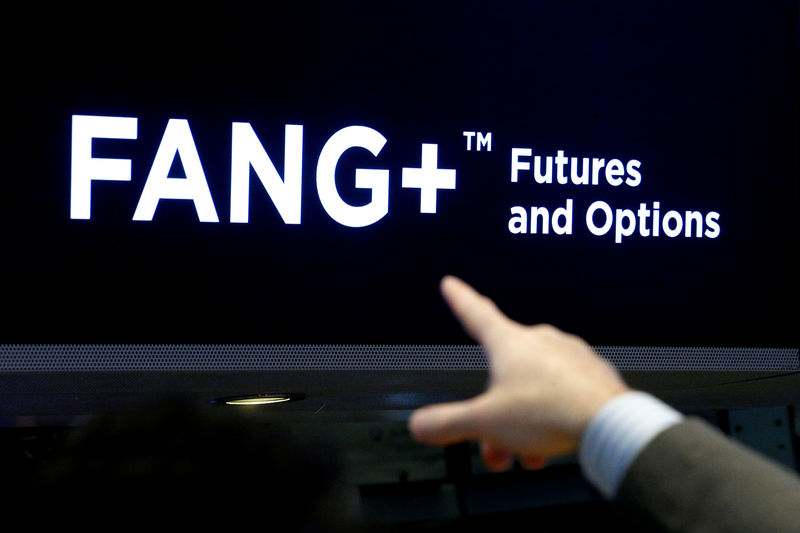By Yasin Ebrahim
Investing.com -- The Nasdaq slumped Thursday, as a sea of red washed over tech stocks after a spike in U.S. bond yields that has stoked investor worry about paying for higher-valued stocks with a longer road to growth.
The Nasdaq Composite fell 3.0%, the Dow Jones Industrial Average fell 0.46%, or 153 points, after hitting a intraday record of 33,227.78. The S&P 500 fell 1.45%.
The United States 10-Year topped 1.7% a day after the Federal Reserve "tripled down" on dovish monetary policy guidance, by raising its growth and inflation forecast but keeping intact its lower-for-longer outlook on rates.
"Our takeaway from the March FOMC meeting was that policymakers did not just 'double-down' on dovish guidance, they 'tripled-down,'" Morgan Stanley (NYSE:MS) said in a note. The Fed shrugged off concern about the uptick in higher longer-term rates … and said "it's still too early to talk about tapering, leaving the risks to the timing of tapering and to rate hikes skewed toward later rather than sooner relative to our expectations."
The sharp rise in bond yields sent tech stocks deep in the red as their valuations remain unattractive when compared with other corners the market like cyclicals that were left behind during the pandemic but are now riding the reflation wave higher.
Facebook (NASDAQ:FB), Apple (NASDAQ:AAPL), Microsoft (NASDAQ:MSFT), Amazon.com (NASDAQ:AMZN) and Google-parent Alphabet (NASDAQ:GOOGL), which together make up a quarter of the S&P 500, were lower.
Chip stocks (NASDAQ:SOXX) also added fuel to the fire, falling 4%, with Broadcom (NASDAQ:AVGO), Advanced Micro Devices (NASDAQ:AMD) and Qualcomm (NASDAQ:QCOM) nursing losses.
Beyond tech, energy was a drag on the broader market, paced by slump in oil prices of fears fresh lockdown in Europe could hurt global growth at a time when major oil producers could soon turn on the pumps to take advantage of lofty oil prices.
"We expect economic growth and oil demand to provide resilient and OPEC+- to ease their production restraint in the coming months. These extra barrels will likely be an oil price headwind as the year progresses," Wells Fargo said in a note.
Financials were the only sector to end in the green, led by banks thanks to rising rates.
"[C]urrent directional correlations are likely to remain intact on a near- to-intermediate-term basis- which implies that investors are likely to see positive relative performance trends out of areas like small-caps, value stocks, and the banks / financials sector as the TNX (10-year interest rate) rallies and the economy continues to reflate its way out of recession," Janney Montgomery Scott.
On the economic front, investors also had to contend an unexpected rise in U.S. weekly jobless claims.
